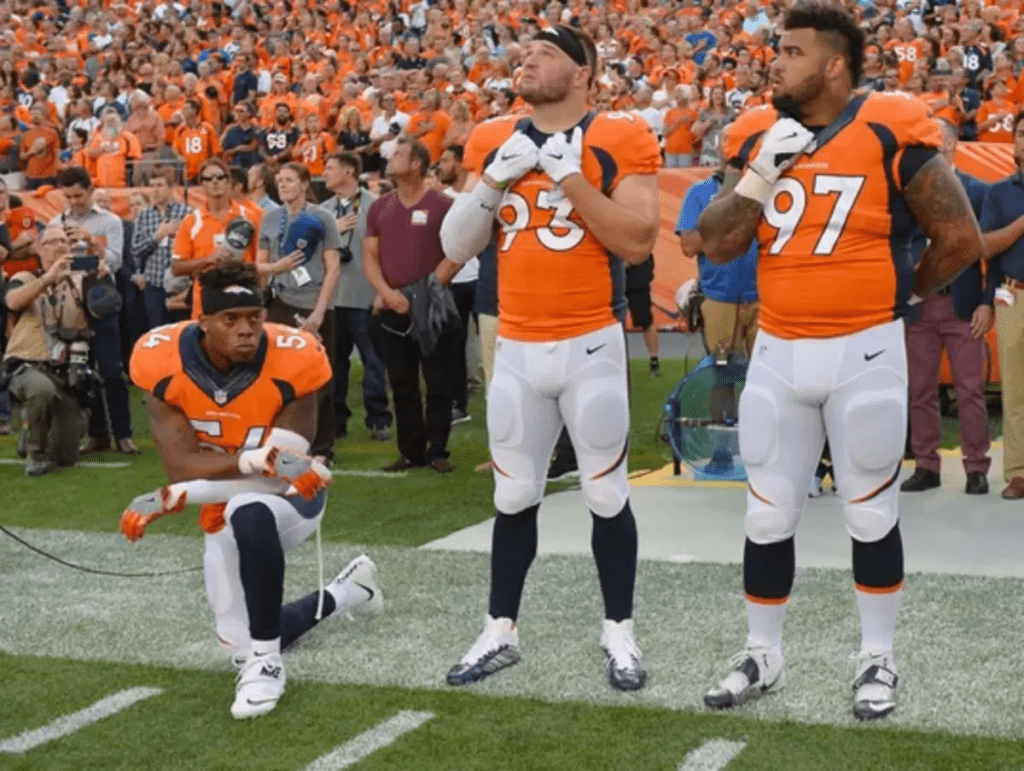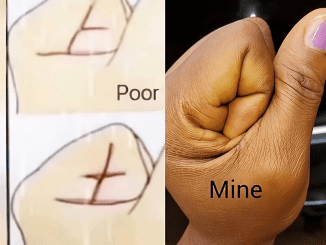In a bold move that echoed the actions of high-profile NFL players, a group of high school football players in New Jersey recently joined the growing protest against social and economic injustice by kneeling during the national anthem. This act of peaceful defiance, led by their coach, has sparked a nationwide conversation and raises important questions about the role of student-athletes in addressing societal issues.
The story begins with Woodrow Wilson High School football coach Preston Brown, who made the decision to kneel alone during the national anthem to bring attention to the “third verse” of the song, which references “the hireling and slave.” Inspired by the actions of NFL players like Colin Kaepernick and Brandon Marshall, Brown felt compelled to take a stand against the systemic inequalities that he had experienced as a student-athlete in the South.

After informing his players of his plan, several members of the predominantly non-white team chose to join Brown in the silent protest. As the coach explained, “I grew up in poverty, a lot of these kids are growing up in poverty. There’s a lot of social injustices and economic disparities. There’s issues right here in our own community.” The students’ decision to kneel alongside their coach demonstrated a deep understanding and empathy for the issues at hand, highlighting the importance of creating spaces where young people can engage with and address societal challenges.
The Woodrow Wilson High School protest did not occur in a vacuum. It is part of a larger movement of athletes, both professional and amateur, who are using their platforms to raise awareness and spur action on pressing social justice issues. From the NFL to college campuses, student-athletes are increasingly finding their voice and leveraging their visibility to advocate for change.
As expected, the kneeling protest at Woodrow Wilson High School generated a mixed response from the community and beyond. While the Camden City School District expressed support for the students’ right to engage in peaceful protest, others viewed the action as disrespectful to the flag and the country. This ongoing debate over the appropriate way to address social and racial inequities underscores the complex and often polarizing nature of these issues.
The decision of the Woodrow Wilson High School football team to kneel during the national anthem raises important questions about the role of student-athletes in social and political activism. As young people who often have a platform and a voice, should they be encouraged to use their influence to advocate for change? Or should they be expected to remain apolitical and focus solely on their athletic pursuits?
Proponents of student-athlete activism argue that these young people have a unique opportunity to shape the conversation and inspire their peers to become engaged citizens. By using their platform to highlight important issues, they can help to cultivate a new generation of informed and empowered leaders. Moreover, the act of kneeling or protesting can be a powerful learning experience, providing students with the chance to critically examine systemic inequalities and develop strategies for driving meaningful progress.
As the debate over the Woodrow Wilson High School protest and similar actions continues, it is clear that there are no easy answers. Navigating the complex intersection of sports, politics, and social justice requires nuance, empathy, and a willingness to engage in difficult conversations.
Moving forward, it will be crucial for communities to create spaces where these issues can be discussed openly and respectfully. By encouraging constructive dialogue and seeking to understand multiple perspectives, we can work towards finding common ground and developing solutions that address the root causes of social and economic injustice.
The kneeling protest by the Woodrow Wilson High School football team is a powerful reminder of the important role that student-athletes can play in shaping the national discourse on social justice. While the response has been mixed, the courage and conviction demonstrated by these young people serve as an inspiration to us all. As we continue to grapple with the complex challenges facing our society, it is essential that we empower the next generation of leaders and provide them with the tools and support they need to drive meaningful change.


